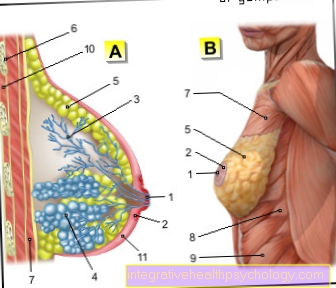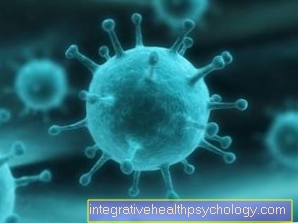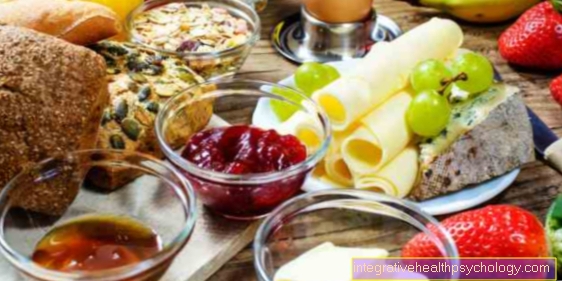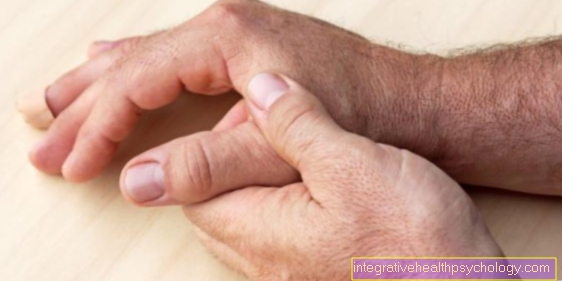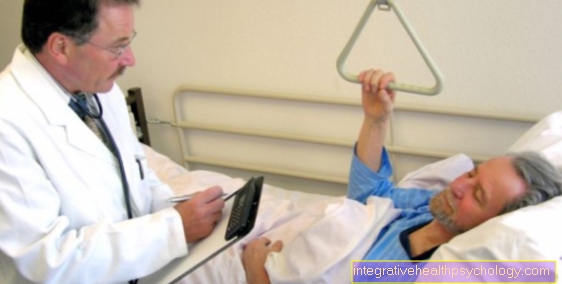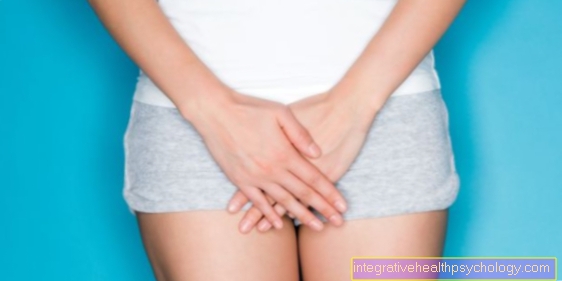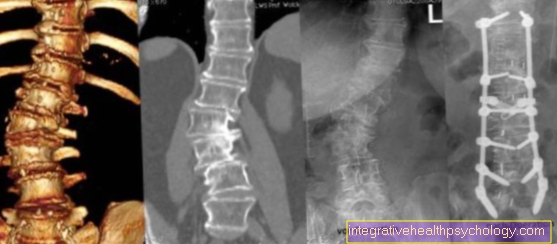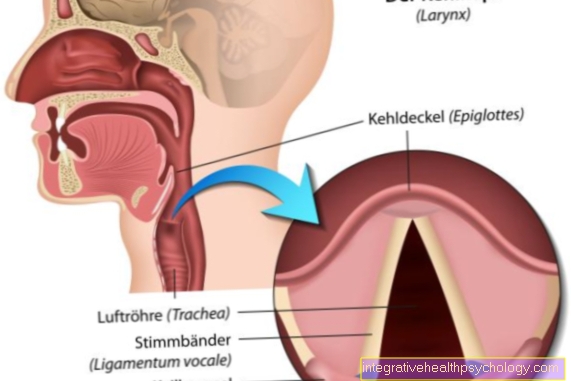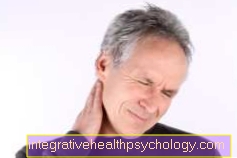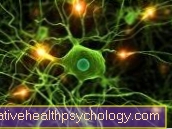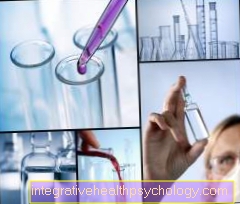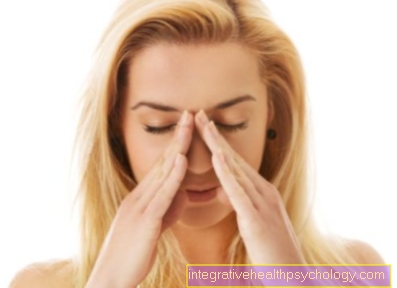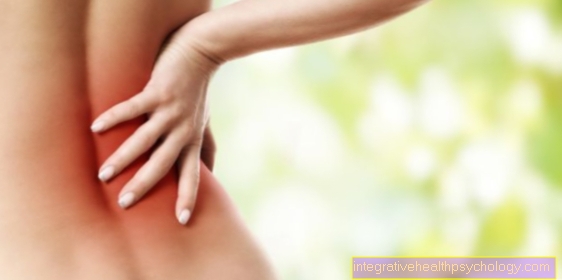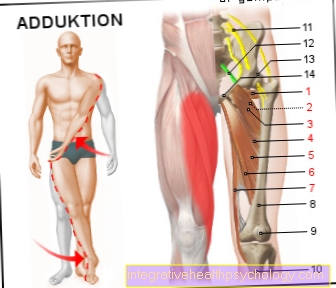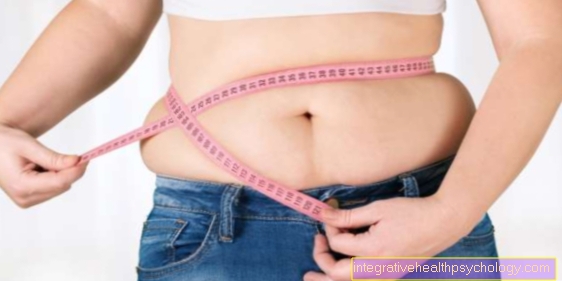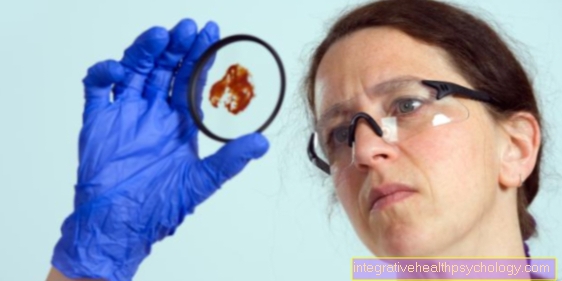Stomach cramps after eating
definition
As a rule, stomach pain is pain that occurs on the left or in the middle of the upper abdomen. The pain is felt in the epigastric region, but stomach pain does not always arise here.
For example, stomach pain can originate from the intestines, pancreas, liver or even the heart. However, if the symptoms occur immediately after eating, a cause in the stomach is likely. Stomach pain is oppressive, stabbing or burning in character. If severe stomach pain occurs suddenly and several times in a row, one speaks of stomach cramps. Stomach cramps after eating can also be associated with other complaints such as belching and heartburn, bloating, diarrhea and nausea.
root cause
Stomach cramps after eating can be caused by the diet and lifestyle of the person affected, but also by diseases of the gastrointestinal tract. The food itself is often the trigger for stomach cramps after eating. Some foods irritate the lining of the stomach, which leads to an increased production of stomach acid. In addition to gastric acid, the stomach also forms a mucus that coats the gastric mucosa and thus normally protects it from gastric acid. If the production of gastric acid is increased, gastric acid will predominate over the gastric protective mucus. The gastric mucosa is therefore more vulnerable and is attacked by stomach acid. This can manifest itself in symptoms such as stomach cramps after eating.
Foods that irritate the gastric mucosa and thus lead to an increased production of gastric acid are for example fatty and spicy food. Also promote alcohol, coffee and nicotine the production of stomach acid. cola and other soft drinks, as well Citrus fruits are themselves acidic and therefore irritate the lining of the stomach.
So these foods can lead to stomach cramps or abdominal pain.
Cabbage and Beans, such as carbonated drinks bloat the stomach. The stomach wall is stretched as a result, which also leads to increased gastric acid production and in turn can damage the mucous membrane. Particularly rich and fatty foods encourage gastric acid to run back into the body esophagus and can therefore often be the reason for heartburn be.
But often it is just that way how food is consumed is what triggers post-meal stomach cramps. For example, in a stressful professional life hectic fed large amounts of food or even completely omitted food during the day and in the evening big portion consumed. All of this puts a strain on the stomach and causes discomfort. Stomach cramps, which occasionally occur after a meal or can be attributed to a particular meal that may have been very fatty, rich and difficult to digest, are mostly harmless and usually go away on their own.
Basically, however, very violent stomach cramps, which recur over several days, should be clarified by a doctor. It is also advisable to consult a doctor if, in addition to stomach cramps after eating, other complaints such as Vomit, Blood in the stool or fever occur. Because in addition to the causes mentioned, diseases of the gastrointestinal tract can also be the reason for stomach cramps after eating. These include one Inflammation of the stomach lining, a Gastric ulcer, Stomach cancer, the Irritable stomach syndrome, Infections of the gastrointestinal tract, as well as one Food poisoning. Other possible reasons for stomach cramps after eating are also Food intolerance (such as the so-called Lactose intolerancewhich cannot tolerate lactose) or Allergies against certain food components (such as the so-called Celiac diseasein which a component in the grain is not tolerated).
diagnosis
If a patient complains of stomach cramps after eating, the first question asked is where exactly the pain is localized, at what interval the stomach cramps occur after eating and after which meals they occur. It is also asked whether the person concerned suffers from stomach cramps after eating, such as vomiting, blood in the stool, fever or weight loss. In addition, the doctor can palpate the person's stomach and do a blood test. If there are indications of a disease of the gastrointestinal tract, other examination methods, such as a gastroscopy, are used.
therapy
Treatment of stomach cramps after eating depends on the cause of the discomfort. Basically, drug, surgical and conservative measures are possible. Medicines that are used to relieve symptoms after eating have antispasmodics (so-called antispasmodics), pain relievers (so-called analgesics), and acid-inhibiting (so-called antacids) effects.
Antibiotics can also be necessary, for example, to treat an inflammation of the gastric mucosa, a gastric ulcer and an infection of the gastrointestinal tract.
Surgical treatment is the method of choice for patients with gastric cancer and is sometimes required for patients with a gastric ulcer.
A number of conservative measures are available for harmless stomach cramps after fatty and rich food.
Which includes:
- Herbal teas (herbs have calming, anti-inflammatory and antispasmodic effects)
- Flaxseed (flaxseed contains mucous substances that lie on the stomach lining and protect against stomach acid)
- Ginger (ginger contains an active ingredient that absorbs acids)
- Caraway oil (caraway oil has a calming and antispasmodic effect and also stimulates digestion)
and - Honey (honey contains substances that support the regeneration of the gastric mucosa).
The use of heat packs can also relieve stomach cramps by increasing the blood flow to the stomach. Relaxation exercises also have a positive effect. In the case of food intolerance or allergies to certain foods, the therapy consists of a diet in which the intolerable food is avoided.
prophylaxis
Stomach cramps, which are caused by diet and lifestyle, can be prevented by avoiding fatty and spicy foods. In addition, attention should be paid to the amount of food consumed and not eaten, especially shortly before sleep. People who are prone to stomach cramps after eating should reduce their intake of citrus fruits. Also, foods that cause gas such as cabbage and beans should be avoided to prevent stomach cramps after eating. Furthermore, alcohol, nicotine and stress should be avoided.
forecast
The prognosis is highly dependent on the cause of the stomach cramps after eating. Stomach cramps that occasionally occur after eating fatty and difficult to digest food are usually harmless.
more information on this topic
- Stomach cramps
- Cause of stomach cramps
- Therapy of stomach cramps
- Stomach cramps nausea
- Stomach cramps home remedies
More interesting information from the field of stomach pain
- stomach pain
- stomach pain
- Upper abdominal pain
- Diseases of the gastrointestinal tract
- Gastric ulcer
- Home remedies as laxatives
You can find an overview of all topics already published in the field of internal medicine at Internal medicine A-Z

